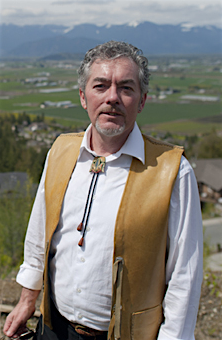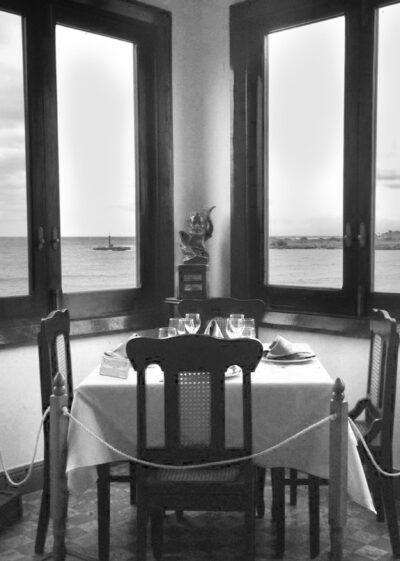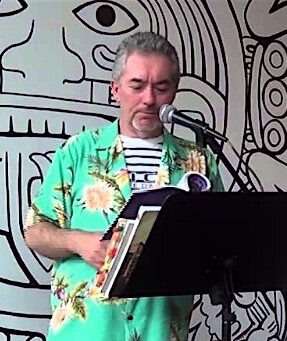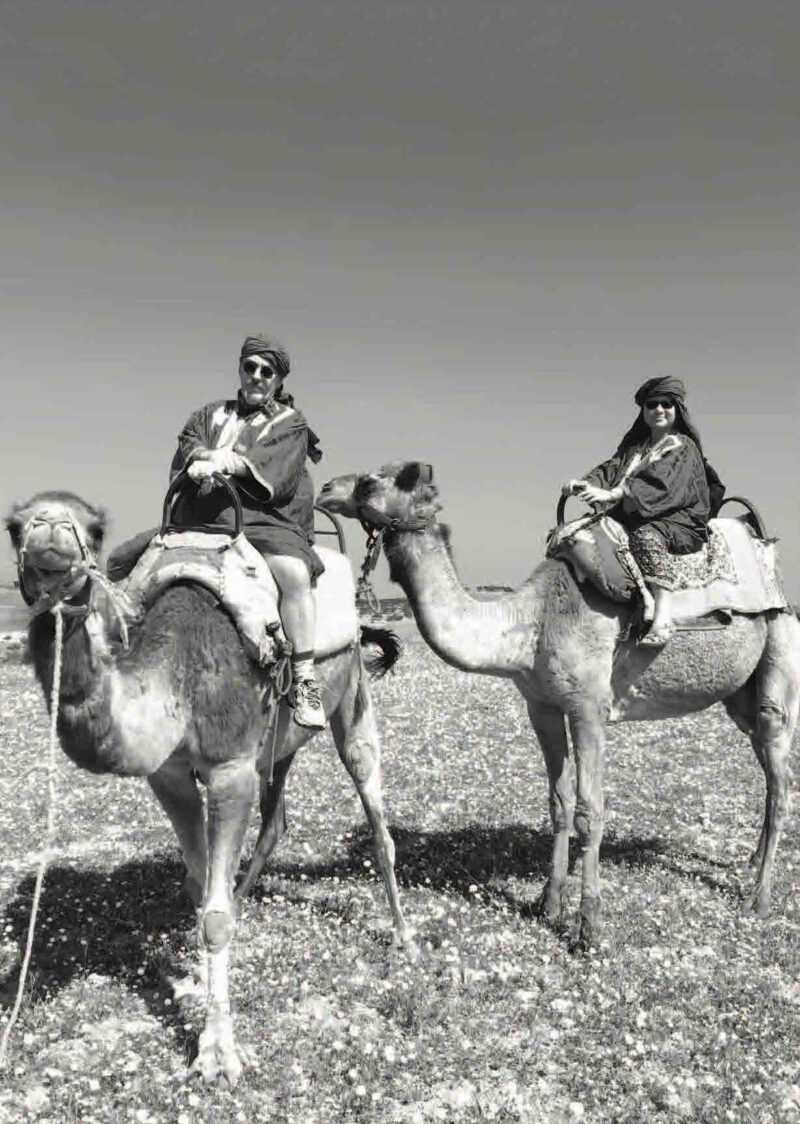1033 On the road with Trevor Carolan
Road Trips: Journeys in the Unspoiled World
by Trevor Carolan
Salt Spring Island: Mother Tongue Publishing, 2020
$21.95 / 9781896949802
Reviewed by Brian Harvey
*
 People writing about travel are like musicians playing a well-known piece. Both are interpreters, offering us their take on something that many have already seen or heard. Beethoven’s “Moonlight” Sonata, for example, is a forest of musical notation that has been tramped through by thousands of pianists. Bali and Paris and Cuba and even the British Columbia rainforest have been tramped through too, many times. All of them, and fifteen other much-visited places, are described by Trevor Carolan in his new book Road Trips: Journeys in the Unspoiled World.
People writing about travel are like musicians playing a well-known piece. Both are interpreters, offering us their take on something that many have already seen or heard. Beethoven’s “Moonlight” Sonata, for example, is a forest of musical notation that has been tramped through by thousands of pianists. Bali and Paris and Cuba and even the British Columbia rainforest have been tramped through too, many times. All of them, and fifteen other much-visited places, are described by Trevor Carolan in his new book Road Trips: Journeys in the Unspoiled World.
Whether you’re a writer or a musician, the strength of your interpretation depends on two things: technique and insight. Those attributes often bear an inverse relationship. Pianists with blazing technique are depressingly common, but a pianist with something to say is rare. The great Canadian pianist Anton Kuerti made a well-argued but unusual choice in his interpretation of Beethoven’s notation for the Moonlight’s serene opening triplets. It’s an adjustment of mere microseconds but it makes Kuerti’s reading unforgettable.

Lots of travel writers write well — they have good technique — but considerably fewer have anything to contribute that comes even close to Kuerti’s little miracle with the Moonlight Sonata. But writing about Paris is not that different from tackling the Moonlight: you’d better bring something more than a fleshing out of field notes.
Trevor Carolan does write well, and he does have something to say, even if I’m not convinced by his labelling the work “travel reporting,” a term I wouldn’t use for writing that embraces introspection the way Carolan’s does. Based on the nineteen pieces in Road Trips, he speaks most powerfully when he’s not alerting the reader that he has something to say. For example, it’s interesting but not essential to the writing that Carolan is Buddhist. Of the many references to the practice of Buddhism in this book, the one most likely to connect strongly with the reader is more about Carolan than it is about Buddhism. In “Coming Home to the Lotus Sutra,” Carolan’s lengthy chapter on India, we see him first as a young man drawn into chanting the hypnotic mantra nam myoho renge kyo in Kolkata and then, decades later, returning to the same temple to relive the experience. There’s an assured and moving circularity to this piece, especially for anyone who has had the experience of drums and heat and inexhaustible, mind-washing repetition. Carolan nails it.

We are taken to many places in this book. Despite its title, few of the journeys are road trips, although some do involve rented cars or drivers hired to take Carolan somewhere. The subtitle is also puzzling, because it brings to mind places rarely visited, when in fact most are popular destinations. If there’s a sense in which Kolkata or Paris can be considered unspoiled, I didn’t find it in Road Trips. There are nineteen chapters in the book’s two hundred pages. Several are so short — Hawaii is two pages about doing Tai Chi on a dock in Maui, and the three pages of “Where Three Dreams Cross” describe a hike in the mountains north of Vancouver — that they can’t even be called essays. Impressions, maybe, or just indulgences: an observation has to be pretty profound to deserve standing on its own like this. Carolan is also a poet, and I would have preferred these two experiences distilled in poetry, not floating around as untethered fragments of prose. Some pieces even stretch the definition of travel writing: the one on Japan, a chapter I looked forward to because it’s a place I know, turned out to be a three-page reminiscence about growing up in New Westminster at a time when a Japanese wrestler called Kinji Shibuya was wiping the floor with the local competition. Shibuya is a district in Tokyo, so I guess there is a connection of sorts.

Many of the pieces in Road Trips have been published before, and the tone and voice of the author vary in a way I found disorienting. Some, like the opening account of a trip to Morocco, adopt the flavour of a dispatch by staying in breathless present tense. Others are firmly in the past tense of genre travel-guide writing. The lengthy account of Paris bubbles along with descriptions of food and lovable French customs with interspersed exclamations of naturellement! and toujours la France! A conductress on the Calais-Paris train is “buxom in a country way,” whatever that might mean. Still on the erotic theme, Carolan tells us that travel journeys are “not unlike making love” because after “discovering a wonderful place for the first time” you then have “the grace of sharing what you’ve learned.” That sounds a bit caddish. What killed the chapter for me was the picturesque hotelier saying “Zere were ze Americain poets living just around ze corner,” followed by, “He shrugged, puffing on a Gauloise.” I moved on before I started to hear accordion music.


Like many collections of writings that range over decades, the pieces in Road Trips are stylistically uneven and don’t describe any discernible arc or unifying message beyond the “then and now” perspective in some of them (like the wonderful one about India) where a location is visited more than once. Nevertheless, readers interested in upbeat travel writing about popular destinations will find much to enjoy in Road Trips. So will those who’ve been to these places themselves and would appreciate a fresh perspective, although there’s always the risk that the reader seizes on a detail that doesn’t sound right. I had this problem with Carolan’s chapter on Lisbon, a city I once stayed in for two months. The chapter is heavy on food and fado and the charming No. 28 yellow tram that threads through the maze of the Alfama district. The trouble is, No. 28 is notorious for pickpockets. When I took it, a big, jovial woman pinned me in a corner, chest to chest, while her partner deftly emptied my pockets. Like Carolan’s French conductress, she too was buxom, probably not in a country kind of way. I would happily go back to Lisbon, but I wouldn’t ride the No. 28 again.

The chapter on Lisbon is Carolan at his breeziest. Over a two-page stretch I fought through a squadron of adjectives that included terrific, great, astonishing, exquisite, soulful, picturesque, unrivalled, pretty, delicious and beguiling. This is too bad, because there is much writing in Road Trips that’s very fine. In the short piece on Arizona, for example, Carolan hikes up a “series of sharp, crusty hills,” a brilliant image that says baking hot without even mentioning the temperature. Again, that unevenness.
For readers of Road Trips, I therefore offer a road map. Start with the mid-book chapter “Dance Your Prayers,” which recounts a new-agey experience in what Carolan describes as a remote and unnamed forest in British Columbia (it can’t have been too remote, because the organizers trucked in a kitchen and a sound system). But I suggest readers go there first, because they will get a good sense for how Carolan feels about such retreats and their role in self-discovery and expression. Once that baggage is taken on, most of the other chapters could be dipped into in any order, with the one on India a standout in construction and feeling that transcends descriptions of food, transportation, buildings and people.
But leave the best for last. “The River to Tir Na Nóg” is about Carolan’s return to Ireland, the land of his ancestors, and it is very far from travel writing because it’s not about travelling. It’s about coming home. Carolan’s voice is different — and, I suspect, truer — here, and no more so than when he describes being called back to Ireland for the wake and funeral of his uncle Terry. We already know the man from the main narrative of the chapter, where Carolan’s depiction is deft, economical and loving. Uncle Terry’s accent and expressions are as convincing as Carolan’s rendering of the Paris hotelier’s English was clichéd. “The River to Tir Na Nóg” is only twenty-five pages long, but in that short space I cared enough about Uncle Terry to be genuinely moved when he was laid to rest.

At the front of the book is a photo of two camels. Carolan rides one, his wife Kwan-Shik Kwon, who accompanies him on many of the trips in the book, is on the other. Those camels made me think immediately of T.E Lawrence. Lawrence was a hardy loner, a skilled manipulator of people and a superb writer, and his time in what was then called simply Arabia resulted in Seven Pillars of Wisdom, a book that so firmly embeds author in territory that I am surely not the only reader who returns to it periodically for another go. Seven Pillars of Wisdom is so good you can find it in either the Travel or the History section of a bookstore, and I wouldn’t be surprised if it’s snuck into Autobiography and Memoir too.
Sadly, Carolan’s reporting on North Africa is no more than a brief record of sights seen, but when the same writer goes back to Ireland the place feels as deep in his bones as was Arabia for Lawrence. Camels don’t make great writing, but connection can.
*

Brian Harvey grew up on the West Coast of Canada and trained as a marine biologist. He began writing newspaper columns and science-travel articles for magazines in 1997. His first book for a general audience, The End of the River, was a Globe and Mail “Best 100” book for 2008 and was followed by two works of fiction, Beethoven’s Tenth and Tokyo Girl. His latest book, Sea Trial: Sailing After My Father, was a 2019 Governor General’s Award finalist for nonfiction and an Independent Publishers Book Awards medalist in the memoir category. See here for a review of Sea Trial by Theo Dombrowski. Brian Harvey has also reviewed books by Robert Amos, Sam McKinney, and Alex Zimmerman for The Ormsby Review. He lives in Nanaimo.
*
The Ormsby Review. More Books. More Reviews. More Often.
Publisher and Editor: Richard Mackie
The Ormsby Review is a journal service for in-depth coverage of B.C. books and authors. The Advisory Board consists of Jean Barman, Robin Fisher, Cole Harris, Wade Davis, Hugh Johnston, Patricia Roy, David Stouck, and Graeme Wynn. Scholarly Patron: SFU Graduate Liberal Studies. Honorary Patron: Yosef Wosk. Provincial Government Patron since September 2018: Creative BC
“Only connect.” – E.M. Forster
3 comments on “1033 On the road with Trevor Carolan”